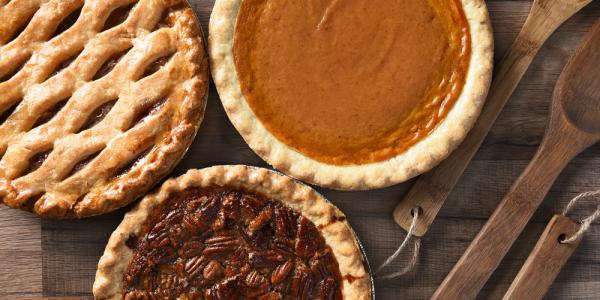Are meals worth the trouble?

“There is considerable peace and comfort in knowing you are going to be fed.”—Ellyn Satter
When our little grandson came to stay for a week last summer, I was quickly reminded of this simple fact of life: kids need to eat often. His growing body demanded feeding more frequently than ours. Our job was to get back into the meal and snack habit. And fast.
We didn’t need to think through the reasons for having meals and snacks. We had plenty of proof right in front of us, pressing us into putting food on the table at regular intervals.
As adults, our hunger and appetite are just as convincing as when we were children. But we often ignore our body’s signs and signals that tell us to eat. Surveys say that one in 5 adults skipped either breakfast or lunch or both. Other surveys say that more than half of adults ate fewer than three times per day.
The 3-Gs of Mindless Eating
Adults do need to eat and will do so every day. For any number of reasons, a lot of adults end up grabbing or grazing or going without--the 3-Gs of mindless eating. I hear about these so often, I’m beginning to think that 3-G eating is the norm! Here’s a rundown of the problems created by the 3-Gs:
- Grabbing: Thought and planning are not required. Grabbing happens when you’re famished. You’re likely to settle for the quickest source of energy.
- Grazing: Snacking throughout the day sounds enjoyable if you like snacks. Grazing, after all, keeps you from being famished. But snacking along instead of having complete meals does not allow you to be fully sated, that is, not eating enough food to satisfy your body. Grazing keeps food on your mind more often than it really needs to be.
- Going without: It may start as an effort to be good, or to not eat so much, or to follow a planned fast. But the body has a way of getting food by amplifying its reminders: first a thought about food, then a rumble of discomfort, then a whopping headache. There may be some other steps in between but you get the idea. By the time evening rolls around, your body is urgent for food. And your brain settles for just about anything. It’s hard to eat mindfully when you’re urgent for food.
To overcome the 3-Gs, consider this: the magic formula of 3 meals plus planned snacks still works in adulthood. Here’s why. Even with a satisfying mix of food in plentiful quantities, your body uses the energy you consumed in a meal within 3 to 5 hours. A meal and snack routine that includes foods you want to eat provides the framework to reliably feed yourself throughout the day. The result is that food keeps its proper place in your life. Important—sure. Pleasurable—yes. And perhaps the most compelling outcome: you’re able to forget about food between times so you can give your attention to other important things in your life.
Do a study of your own
When you’re ready, try this little experiment. Plan out a day of meals and snacks. It could be what you’re eating now. Just putting the foods together into meals and snacks. Take a break for 10 to 20 minutes or so to eat each one. Notice how you’re feeling before you start eating. Next, notice the first bite. Then pay attention to the food and how you feel while eating it.
Collect some data points on things like mood and energy level. You don’t have to write anything down. It’s fine just to notice. What were the benefits? What were the drawbacks?
Cost-benefit ratio
If you noticed any benefits to planned meals and snacks, what's stopping you from doing it? Is it limited time? Is it limited money? Is it not knowing what to do or how to do it?
To help you sort this out for yourself, I'm offering a lunchtime class to learn more about meal planning. Please register to join me for $ensible Meals..
Related Articles

The weight is over: How to leave office ‘weight talk’ in the past
Return to the office with simple strategies to resist weight and body image concerns.

Focused Eating in a World of Distraction
Finding a quiet moment in a world of technology is difficult. Distractions are at the touch of a button. Review Abby's suggestions to help you pay attention and enjoy your meals and snacks.

It's a 2020 Thanksgiving - Enjoy It!
Yes, Thanksgiving might look different this year. It’s time to make the most of it and share thanks with those in your “bubble.” Here are some tips to perk up your day and share your best with those you’ve been blessed to join you in giving Thanks.

Eating Well in the Midst of Plenty
Learn to trust yourself even when there's lots of food around.





